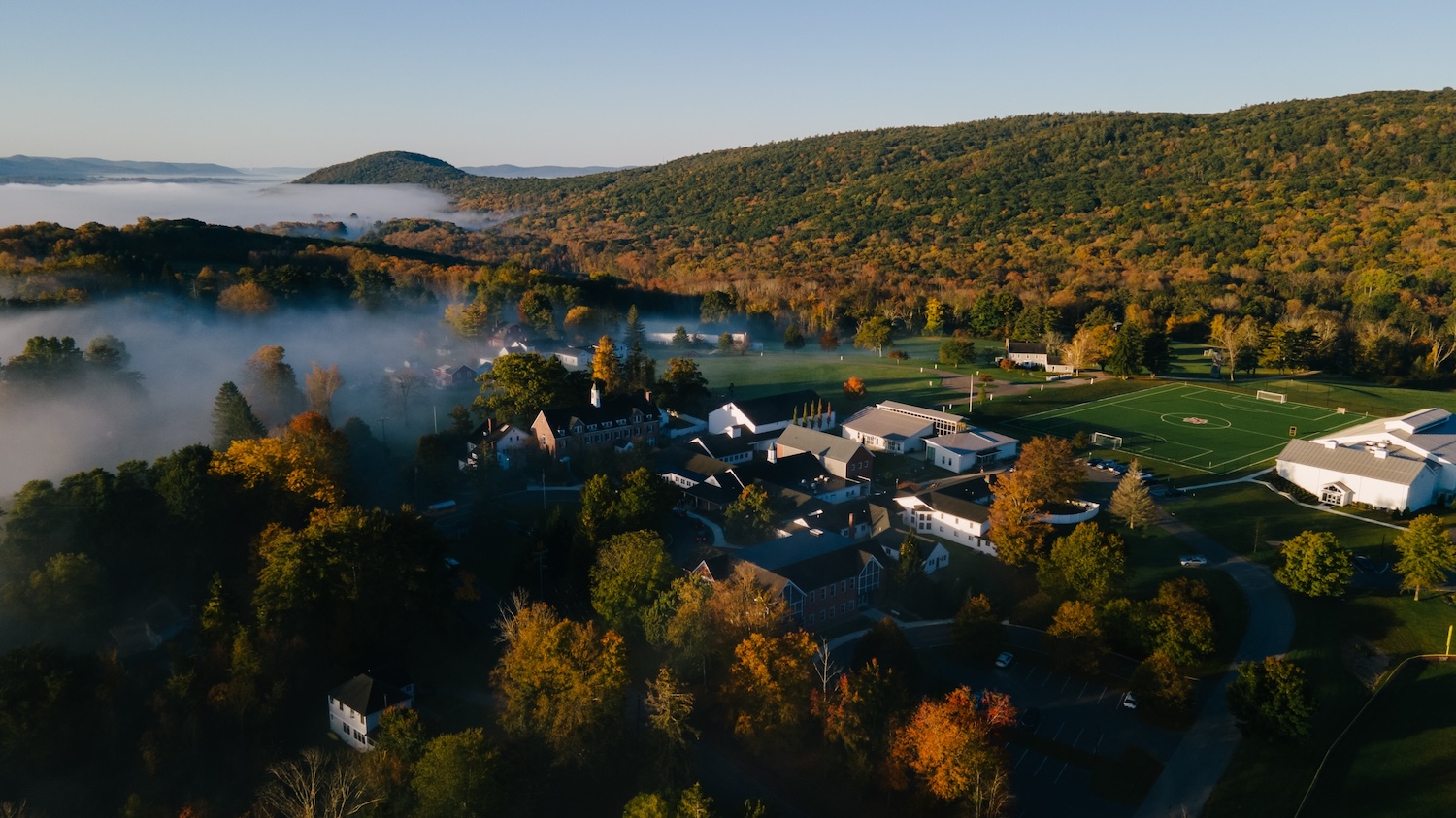Remembering Doug Tompkins '57

In 2009, Doug visited IMS for the first time since graduating in 1957 to share his vision with students and faculty at a morning assembly, tour his old campus, and visit with fellow alumni Stone Ermentrout ’57 and John Whitman ’57 over a lunch in the Ingle Conference Room. Doug inspired our students with details of his many projects, his love for the outdoors, and his determination to make a difference for the planet. His photos of the farms and animals in South America helped our students grasp the importance of creating sustainable agriculture where healthy and happy plants and animals produce healthy food. He also emphasized the benefits of using local products and craftsmanship and the beauty of handmade things compared to factory produced. He also challenged students to ask themselves if they really need the latest gadgets and toys–stressing that a minimalist approach to technology is healthier for our planet.
On a nostalgic trip up Indian Mountain, Doug spotted the old IMS ski tow bus and immediately started wondering how much longer before the rusty bus would “melt” back into the earth. He predicted that if it had decomposed that much in 50 years, it might be completely absorbed in another 200 years. That is just one example of Doug’s deep understanding of ecology and the impact we have on our planet.
In 2011, Indian Mountain’s Head of School Mark A. Devey traveled with members of the IMS faculty to visit Doug and his wife Kris at their 1,255 square mile Pumalin Park, a private nature reserve, in the Palena Province of Chile. Their visit inspired a movement to add composting, a community garden, and other environmentally focused initiatives to our programs. Kris Tompkins visited IMS later that year to present more information about the Tompkins’ missions to create national parks in the Patagonia region of Chile and Argentina.
Our alumni office contacted Doug last summer for an article, asking him about his approach to successfully conserving land in a culture that is not his own: “We work as hard as we can to get local ‘buy-in’ of the idea, and in our case work on the economic development side usually through tourism, but also we like to restore traditional values, folklore, and rural pride. We have public outreach programs specifically oriented to eco-localism.” Doug explained. Part of his message was that “it is far more desirable to live in rural conditions than in cities and that music, dance, craft, and meaningful work are the things to go for.” Doug lived by those words.
Doug is survived by his wife, Kristine McDivitt Tompkins; his daughters Summer Tompkins Walker and Quincey Tompkins Imhoff; his mother, Faith; and his brother, John.
Comments
There are no comments yet. Be the first to add something!